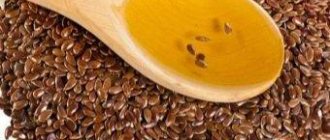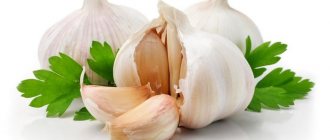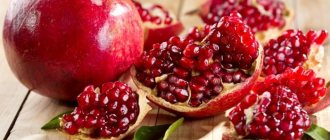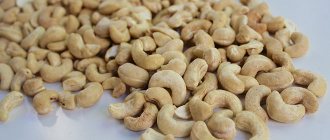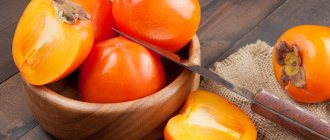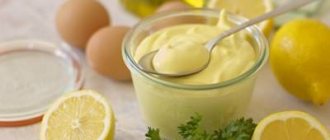Tomatoes are such a beloved and familiar product on the table that the question of whether a nursing mother can eat tomatoes is puzzling. However, despite the naturalness and presence of vitamins, each type of product must be examined for an allergic reaction. Tomatoes are no exception. After all, an element of food enters the mother’s milk, and during breastfeeding it is sent to the baby’s body.
There is no consensus on whether tomatoes can be consumed while breastfeeding. Both doctors and nursing mothers give and justify different answers. Let's look at both the positive and negative effects of this product on the body of mother and child.
Useful material
Fresh natural tomatoes have a lot of useful substances that contribute to the healthy development of the human body. The product contains anti-cancer, antidepressant and antioxidant substances. Eating tomatoes will improve your mood and reduce the risk of cancer.
| Substances | Effect on the body |
| Vitamins A, C and E, group B, nicotinic acid PP | Protect against viruses and infections, increase immunity |
| Serototin (a natural antioxidant that is formed from the amino acid tryptophan) | The hormone of joy will create a feeling of emotional well-being and normalize the functioning of the nervous system |
| Lycopene (the substance that colors the product red) | Performs a protective function of DNA, slows down cell aging and prevents the occurrence of cervical cancer |
| Kholin | Increases hemoglobin levels in the blood |
| Purine (makes tomatoes low in calories) | Helps you lose weight and get rid of kidney and gastrointestinal problems |
| Leucopene (antioxidant) | Slows down oxidation, prevents the formation of blood clots and improves blood properties |
The fruits contain a large number of macroelements. Among which are iron, zinc, potassium, iodine, magnesium, manganese, sodium, boron, sulfur, phosphorus, chlorine, calcium and copper.
The peel stimulates the intestines, and the seeds thin the blood. By the way, natural tomato juice has a beneficial effect on salt metabolism in the body and normalizes the lactation process.
Don’t forget about yellow tomatoes, which contain a large amount of vitamin B. They improve metabolism and hormonal levels, strengthen nerves, heart and blood vessels. At the same time, they contain less acid.
Yellow tomatoes are not only possible but also necessary to eat while breastfeeding. They will be an excellent alternative for women with allergies to red foods and for mothers with high acidity.
In what form is it best for a nursing mother to eat tomatoes?
The healthiest vegetables are fresh. A salad of tomatoes and other vegetables, seasoned with a small amount of vegetable oil or sour cream, is very tasty and is well absorbed by the body. Fresh tomato juice is also useful (see Tomato juice during lactation). But nursing mothers should not eat canned or pickled tomatoes. They undergo heat treatment, their marinade includes vinegar, sugar, salt, and spices. There are very few vitamins left in them, but they can negatively affect the digestive organs.
Tomatoes, like other vegetables, have the right to be in a woman’s diet during lactation, if there is no allergy to them. There is absolutely no need to deprive yourself of a varied and healthy diet without serious reasons. And the baby needs to get acquainted with different taste sensations through mother’s milk, and then on his own.
When a woman breastfeeds, she has a huge responsibility for the health of her baby. Any food eaten indirectly has a positive or negative effect on the baby’s body. A nursing mother has to give up many foods. And all for the sake of making the baby feel good. Tomatoes during breastfeeding are also on the prohibited list. But the ban applies only to the first few months of a child’s life.
Tomatoes are popular “vitamin-rich” vegetables that taste good. In the middle and at the end of summer, these fruits especially tempt us with their deliciousness. The vegetable has not only a beautiful, bright appearance, but also a whole range of useful substances (vitamins, microelements, fiber, etc.). Let's figure out why you can't eat tomatoes while breastfeeding in the first months?
Dangers of eating tomatoes
However, eating tomatoes can also have negative consequences:
- They can cause an allergic reaction in both the child and the mother. These are mainly red tomatoes, which contain lycopene that is difficult to digest;
- They increase stomach acidity and cause heartburn in a nursing woman. As a result, the newborn experiences irritation of the gastric mucosa;
- They increase gas formation, which subsequently causes colic in the baby.
You should not exclude tomatoes from your diet due to side effects. You need to wait until the baby is two or three months old. To avoid trouble, follow the rules for taking tomatoes while breastfeeding.
Summarizing
Tomatoes are very healthy and tasty. They have a beneficial effect on all body systems. In addition, they strengthen the immune system and prevent the development of anemia in people. However, tomatoes can harm the baby: cause allergies or tummy pain. Therefore, a nursing mother should be extremely careful when introducing this product into her menu. Try to consume tomatoes fresh - make them into salads with sour cream or vegetable oil, eat them as a bite.
In any case, when introducing new foods into your diet, do not forget to consult your doctor.
Every nursing woman needs to think about the healthfulness of the foods she consumes during lactation. A nursing mother does not always know how and what she needs to eat and whether it will harm the baby’s health. In some cases, or rather almost always, a nursing mother needs to give up her usual foods. Therefore, a woman needs to foresee all options in advance, including the fact that the child will become allergic.
So, can a nursing mother have salted or fresh tomatoes? First you need to find out - what are the benefits of tomatoes for a woman during lactation?
You should know that one glass of natural tomato juice contains half the daily requirement of vitamin C. It has also been proven that tomato juice not only stimulates, but also normalizes the lactation period.
The process of lactation involves the release of beneficial substances from the mother's breast milk. And these substances enter the mother’s milk from her blood. If a nursing mother does not have enough nutrients in her body, the child will not receive what he needs for development.
Tomatoes contain a huge amount of vitamins A, E, K, PP - they all help normalize metabolism. Fresh tomatoes contain potassium, zinc, and iron. These minerals are needed by a newborn and, of course, a nursing mother for full development. It is worth noting that tomatoes contain a high amount of serotonin, the hormone of joy and pleasure, known as an antidepressant.
Rules of use
- Wait two to three months after the baby is born. This is necessary to ensure the healthy development of the newborn, to strengthen the immune system and normalize the functioning of the body;
- Introduce the product into the diet gradually and carefully monitor the child’s reaction. If a tomato causes an allergy, you should stop using it for at least two months;
- To check your child’s reaction, eat half a tomato in the morning and monitor your baby’s well-being throughout the day;
- Choose organically healthy vegetables. It’s good if they come from the garden without nitrates, preservatives and other harmful elements;
- Do not exceed the permissible limit. Two or three tomatoes or one glass of fresh tomato juice per day is enough;
- Eat tomatoes raw, in salads and in tomato paste. Avoid fried, salted or pickled tomatoes. When cooked, they will lose useful elements and vitamins. And vinegar, which is added to pickles or marinade, will disrupt the normal functioning of the intestines and stomach of the newborn;
- Stewed tomatoes will add variety to your dishes. After processing, they retain their beneficial properties, except for some vitamins. By the way, lycopene is more easily absorbed in stewed form.
Tips for nursing mothers on eating and choosing tomatoes
- When introducing tomato into your diet, do not forget about the quantity of the product. Take precautions to avoid causing complications in your baby.
- Choose vegetables with thin but intact (not damaged) skins.
- Give preference to locally grown fruits.
- Don't buy tomatoes in winter.
- Do not purchase spoiled fruits.
- Avoid any fruit that is pale pink or has rough veins in the cut; it is likely to contain a lot of pesticides.
- Do not buy tomatoes out of season - this is when there is a high probability of buying vegetables with a lot of chemicals.
Watch video tips on how to choose the right tomatoes:
If your main period of tomato consumption is planned for the “off season,” then prepare for it in advance: during the ripening period of vegetables, buy fresh tomatoes (preferably small, cherry ones) and freeze them in the freezer for future use.
How to choose the right tomatoes
If you do not have the opportunity to eat food from the garden, you will have to buy it. Nitrates and other harmful substances will cause great damage to the baby’s body and cause allergies. Therefore, you should purchase vegetables, fruits and berries in season. Pay careful attention to the selection of products.
- Press your finger into one of the tomatoes. If the peel remains intact, but the surface is wrinkled, then the product cannot be purchased.
- Toss the tomato lightly over a hard surface. If the peel does not burst upon rebound, then the product contains nitrates;
- Cut the tomato. A pale pink color or the presence of white streaks indicate the presence of chemicals;
- Assess the color and integrity of the peel. Do not take unripe or rotten fruits. Avoid red-green or red-orange tomatoes.
- Make sure that there are no black spots, spots or cracks on the product;
- Avoid buying fruits with skins that are too hard and resemble plastic.
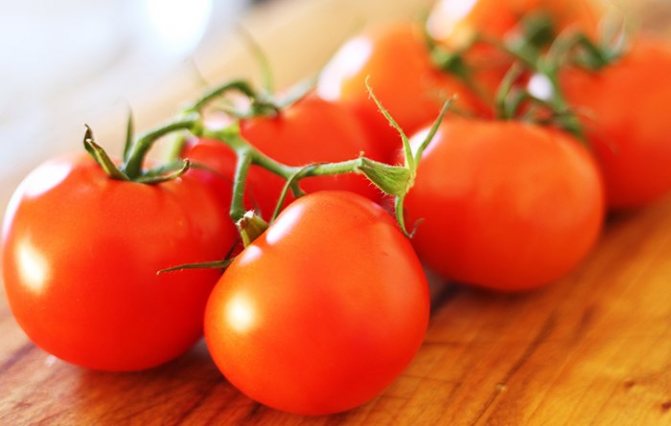
If the feeding period falls in the winter, you can freeze the tomatoes in the summer.
For freezing, choose small cherry tomatoes. Wash and dry the tomatoes thoroughly, lightly freeze on a plate, bag and place in the freezer. Remember that you cannot freeze the product more than once! Subscribe to our VKontakte group
Tips for nursing mothers on eating and choosing tomatoes
- When introducing tomato into your diet, do not forget about the quantity of the product. Take precautions to avoid causing complications in your baby.
- Choose vegetables with thin but intact (not damaged) skins.
- Give preference to locally grown fruits.
- Don't buy tomatoes in winter.
- Do not purchase spoiled fruits.
- Avoid any fruit that is pale pink or has rough veins in the cut; it is likely to contain a lot of pesticides.
- Do not buy tomatoes out of season - this is when there is a high probability of buying vegetables with a lot of chemicals.
Watch video tips on how to choose the right tomatoes:
If your main period of tomato consumption is planned for the “off season,” then prepare for it in advance: during the ripening period of vegetables, buy fresh tomatoes (preferably small, cherry ones) and freeze them in the freezer for future use.
Salted tomatoes while breastfeeding - yes or no?
No one will give a negative answer to the question: “Is it possible to eat salted tomatoes while breastfeeding or not?” But, there is a categorical ban on eating salted tomatoes in the first few months of a child’s life. Since in the period from the first to the third month the baby’s intestinal flora is just forming, the consumption of forbidden foods by a nursing mother can lead to colic in the child, as well as flatulence (gas formation).
You can eat salted tomatoes, but only from the sixth month of breastfeeding. Therefore, starting from the fifth month, you can add salted tomatoes, but in small quantities. Then the portion can be gradually increased.
Pediatricians recommend eating one tomato in the morning, feeding the baby, and then observing his reaction over the next 24 hours. If within 12-24 hours the baby does not develop rashes, skin rashes, bowel movements, or gas formation, then you can safely eat pickles.
Portions of pickles need to be increased gradually, otherwise the baby may develop atopic dermatitis on the very first day. Any manifestations of rejection in a baby are a reason for adjusting eating behavior.
It is also worth noting that pickles contain a fairly large amount of salt. As you know, salt retains water in the body. As a result, this leads to increased blood pressure, excess body weight, and the appearance of edema. The daily recommended intake of pickles is no more than 100-150 grams.
